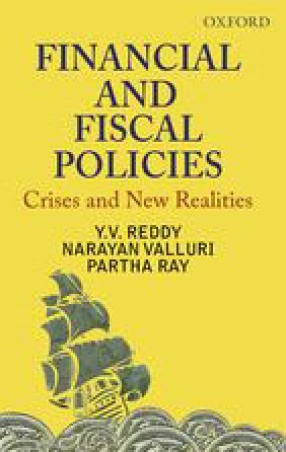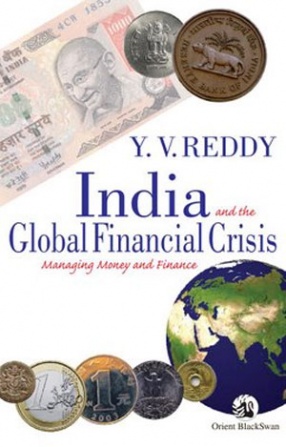The worst of the economic crisis has passed, and the global financial system is picking through the wreckage of its reckless ambition. Recovery has started at different paces in different places, but it promises everywhere to be prolonged and uneven. What has the world learnt from the most severe financial setback it has suffered in three generations? What must it unlearn to ensure that it does not rush into an encore? And what must India do to work towards ending the systemic distortions in global finance and crippling economic inequities at home?
As Governor of the Reserve Bank of India between 2003 and 2008, DrY.V. Reddy stayed the course of financial pragmatism in times of relentless deregulation. Through visionary leadership, finely calibrated financial management and a prescient reading of global economic indicators, he ensured India largely escaped the fate that befell the worst affected of the world’s economies.
In 2009, Dr Reddy told the story of, an account of his five years at the helm of the RBI at a time of multiple challenges for the Indian economy. This new book is a sequel to last year’s bestselling work. It provides a thinker and experienced policymaker’s understanding of the genesis, anatomy and impact of the financial crisis, and of the lessons it offered. It contains perspective and analysis that Dr Reddy has not published before, presented in lucid style and non-technical language. This is a looking-ahead book for India and the world—from an oracle who has already demonstrated how clearly he sees the future.
The first section of the book offers a lucid explanation of the financial crisis and accounts for its consequences. For a basic understanding of the financial crisis, a primer on the global financial crisis is offered and some proposals for reforms are also offered. One of the consequences of the crisis is the shift in the balance of economic power in favour of Asia. Yet another focus of the book is the role of central banks in the evolution of the global financial crisis, in particular the role played by central banks in developing countries. Explanations with regard to the causes of the global financial crisis and an overview of the prolonged extensive excesses that acted synchronically to cause the global crisis are discussed in detail.
The second section of the book focuses on the future of the financial sector with some cautious remarks about uncertain recovery and prospects for the futures. The financial regulation in developing countries is highlighted. The emerging issues in the financial section are discussed in detail. The future of globalisation of finance and the global regulation of the financial sector is discussed as well. The last chapter of this section provides a broad framework for global financial regulation.
Finally the book focuses on India’s performance and prospects; India’s experience in regulating the financial sector; and the need for reform in India’s financial sector. The last chapter in this section draws attention to the major issues being considered in the global debates on revamping the regulation of financial sector and reviews the status in India in respect of each issue.








There are no reviews yet.